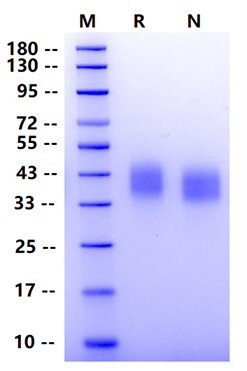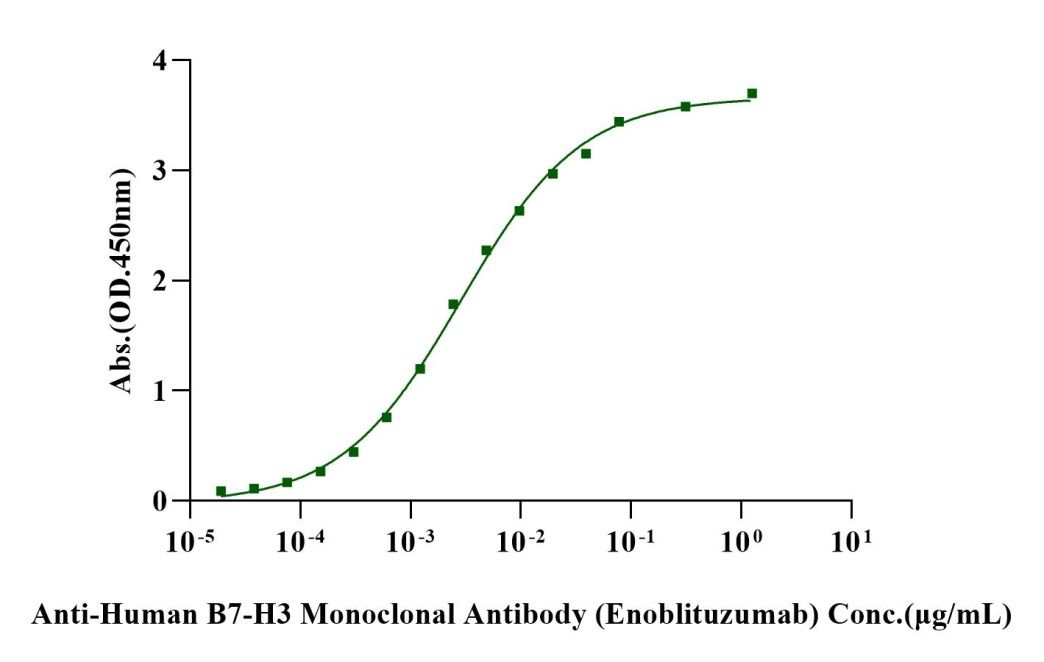Leu29-Pro245, with C-terminal 10*His&Avi tag LEVQVPEDPVVALVGTDATLCCSFSPEPGFSLAQLNLIWQLTDTKQLVHSFAEGQDQGSAYANRTALFPDLLAQGNASLRLQRVRVADEGSFTCFVSIRDFGSAAVSLQVAAPYSKPSMTLEPNKDLRPGDTVTITCSSYRGYPEAEVFWQDGQGVPLTGNVTTSQMANEQGLFDVHSVLRVVLGANGTYSCLVRNPVLQQDAHGSVTITGQPMTFPHHHHHHHHHHGLNDIFEAQKIEWHE
38-48kDa
1、Liu J. et al. (2021) Targeting B7-H3 via chimeric antigen receptor T cells and bispecific killer cell engagers augments antitumor response of cytotoxic lymphocytes. J Hematol Oncol. 14(1): 21.
B7-h3 (B7 homolog 3 protein), also known as CD276, is an important immune checkpoint molecule in the B7-CD28 family. It is a type I transmembrane glycoprotein consisting of 316 amino acids and contains a putative 28AA signal peptide, a 217AA extracellular region composed of immunoglobulin constant (IgC) and variable (IgV) structures, a transmembrane region, and a 45-amino acid cytoplasmic domain. B7-H3 is a T cell co-suppressor molecule with partial co-stimulatory function. B7-H3 can effectively inhibit the function of T cells and NK cells, and also play a role in bone development. The expression of B7-H3 is low in normal tissues and is found in a variety of malignant tumors, which is closely related to the growth, metastasis, recurrence and poor prognosis of malignant tumors. B7-H3 can down-regulate T-assisted type 1 mediated immune response, inhibit CD4+T cell activation and inhibit cytokine production, and thus may play a role in promoting immune escape of cancer cells.


Immobilized Biotinylated B7-H3/CD276 His&Avi Tag, Human (Cat. No. UA010328) at 2 μg/mL on Streptavidin precoated (0.5μg/well) plate, can bind Anti-Human B7-H3 Monoclonal Antibody (Enoblituzumab) with EC50 of 2.50-3.30 ng/ml.